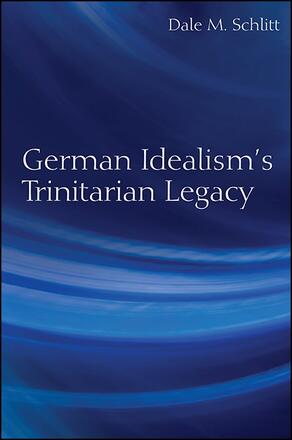
German Idealism's Trinitarian Legacy
Alternative formats available from:
A study of the roots and legacy of German Idealist philosophy for trinitarian theology.
Description
Dale M. Schlitt presents a study of trinitarian thought as it was understood and debated by the German Idealists broadly—engaging Schelling's philosophical interpretations of Trinity as well as Hegel's—and analyzing how these Idealist interpretations influenced later philosophers and theologians. Divided into different sections, one considers nineteenth-century central Europeans Philipp Marheineke, Isaak August Dorner, and Vladimir Sergeyevich Solovyov under the rubric "testimonials." Another section studies twentieth-century Germans Karl Barth, Karl Rahner, and Wolfhart Pannenberg, who share "family resemblances" with the Idealists, and a third addresses the work of twentieth- and twenty-first century Americans, Robert W. Jenson, Catherine Mowry LaCugna, Joseph A. Bracken, and Schlitt himself, whose work reverberates with what Schlitt terms "transatlantic Idealist echoes." The book concludes with reflection on the overall German Idealist trinitarian legacy, noting several challenges it offers to those who will pursue creative trinitarian reflection in the future.
Dale M. Schlitt is Professor of Philosophy, Theology, and Spirituality at the Oblate School of Theology, San Antonio. He is the author of many books, including Hegel's Trinitarian Claim: A Critical Reflection, also published by SUNY Press.
Reviews
"Schlitt's book is an important contribution to the history of philosophy and theology, and will remain a standard work in the field for years." — Analecta Hermeneutica
"Readers of varying interests will be richly rewarded no matter where they turn … This book should interest anyone working in Trinitarian theology and/or German Idealist philosophy and those interested in specifically Jesuit contributions to both of these conversations. And for anyone who attempts to teach any of this material, at the college level or above, one could hardly find a better model than Professor Schlitt." — Journal of Jesuit Studies
"…an excellent book that very few could have written. But it is a book very many should read." — Reviews in Religion and Theology
"...a monumental achievement of learning in the tradition of trinitarian thought." — Reading Religion